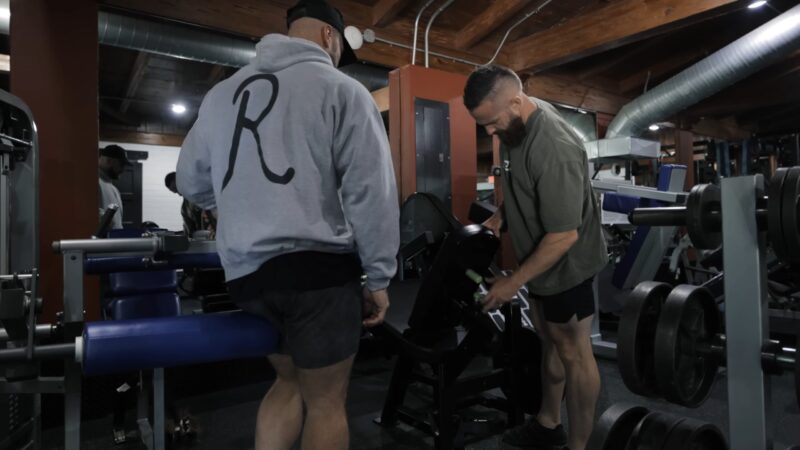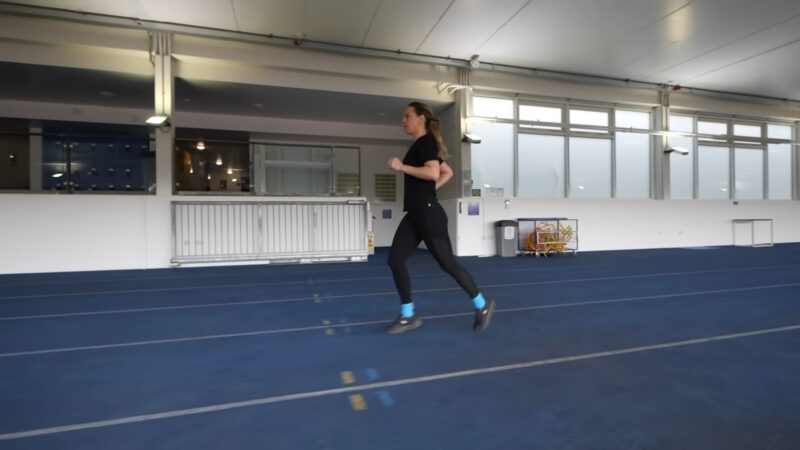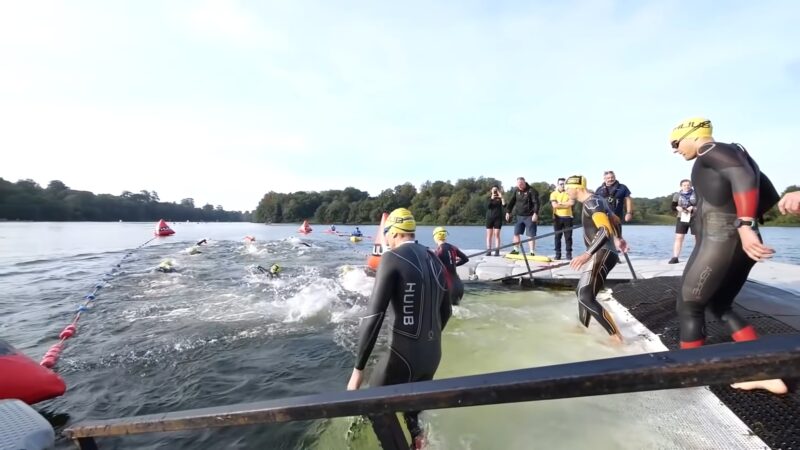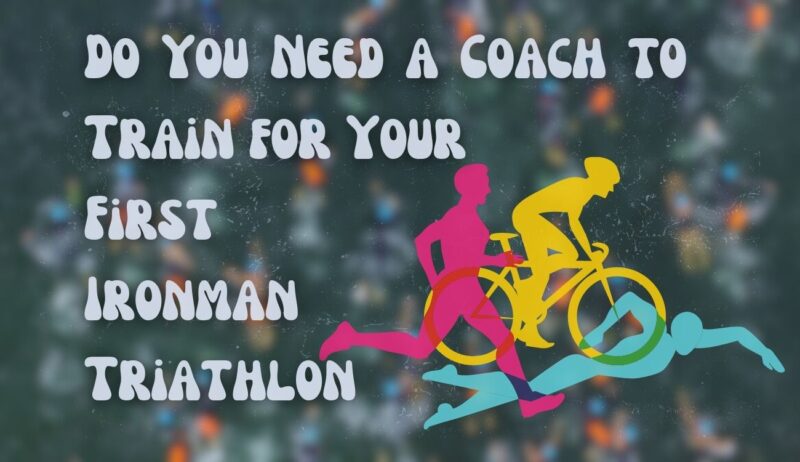Embarking on the journey to complete your first Ironman triathlon is both an exciting and daunting challenge. With a 2.4-mile swim, a 112-mile bike ride, and a marathon run to cap it all off, the sheer physical demands of the Ironman can be overwhelming. That’s where the question arises – do you need a coach to prepare for this arduous test?
In this post, we’ll navigate through this question by breaking down the benefits and limitations of hiring a coach and exploring the alternatives. No matter what you decide, your end goal is the same: crossing that finish line. But the path you choose to get there can be as unique as you are.
The Role of a Triathlon Coach
A triathlon coach is more than just someone who shouts instructions from the poolside or maps out your cycling route. They are your mentor, your guide, your strategist, and your motivator. Their role is to devise a tailored training plan that suits your abilities, lifestyle, and goals while ensuring you remain injury-free.
With their wealth of experience and expertise, a coach can refine your techniques in swimming, cycling, and running, potentially saving you valuable minutes on race day. They can also provide nutritional guidance and psychological support, both vital for managing such a grueling race.
The Benefits of Hiring a Coach

The benefits of having a coach are manifold. Primarily, they provide structure to your training. This is crucial, as balancing three different disciplines in preparation for an Ironman can be complex and confusing.
- Structure: They’ll lay out a plan detailing what to do, how to do it, and when.
- Feedback: They can provide instant feedback on your performance and techniques.
- Motivation: They’ll keep you motivated throughout your journey.
- Injury Prevention: Coaches can help prevent injuries by ensuring you’re training correctly.
Beyond advice and motivation, a coach can help you understand key aspects like how to optimize your speed and endurance in swimming, cycling, and running – a crucial component for effectively unlocking your athletic potential.
The Limitations of Hiring a Coach
While a coach can be invaluable, there are limitations to consider. Firstly, hiring a professional coach can be expensive, and not all aspiring triathletes can fit this cost into their budgets. There’s also the matter of compatibility. Not every coach-trainee relationship works out; it’s essential that your personalities and philosophies align.
Furthermore, despite a coach’s expertise, you know your body best. A coach may push you hard, but it’s important to listen to your body and communicate your limits effectively.
The Self-Coaching Route

If hiring a professional coach isn’t feasible or appealing, self-coaching is a viable option. This requires discipline, resilience, and a hunger for learning. You’ll need to do your research, make a plan, and stick to it, adjusting as necessary along the way.
Of course, this path can be challenging due to the absence of professional guidance. You’ll need to be extra mindful of your body, ensuring you’re training effectively without risking injury. An excellent method is to leverage online resources, books, and triathlete communities for advice and support.
Learning from Others: Triathlon Communities and Training Groups
You don’t have to go it alone, even if you opt for self-coaching. Joining local triathlon communities or training groups can provide you with a supportive environment to share experiences, ask questions, and gain insights from fellow triathletes.
Training in a group can also make your sessions more enjoyable, helping you stay motivated. Furthermore, you might find experienced athletes who can share valuable tips and techniques, essentially serving as informal coaches.
Online Coaching Platforms
The internet is a boon for aspiring Ironman triathletes. Numerous online platforms provide structured training plans, video tutorials, webinars, and even AI coaching, making it easier for self-coached athletes to prepare for their first Ironman.
These platforms range from free resources to subscription services, allowing you to choose the best fit for your budget and needs. While this approach lacks the personal touch of a dedicated coach, it can be an effective and affordable alternative.
Building Your Training Plan
Whether you’re self-coaching or working with a professional, building a solid training plan is paramount. Your plan should accommodate your fitness level, schedule, and target completion time, balancing all three disciplines without neglecting recovery time.
For beginners, it’s generally recommended to start training 6 to 12 months before the race. Each week should incorporate a mix of:
- Endurance Training: Long, slow sessions to build your stamina.
- Strength Training: To boost power and prevent injuries.
- Technique Work: To refine your swimming, cycling, and running form.
Nutrition and Recovery

Nutrition and recovery are as important as your physical training. Consuming a balanced diet rich in carbohydrates, proteins, and healthy fats will fuel your workouts and aid recovery. Hydration is equally vital, especially during long training sessions and on race day.
Rest and recovery should be integral parts of your training plan. Adequate sleep, active recovery sessions, and mindfulness practices can help manage stress and prevent overtraining, ensuring you’re in peak form when the race day comes.
Mental Preparation
The Ironman is as much a mental challenge as it is a physical one. Developing mental resilience is crucial to push through when your body begs to stop. Techniques like visualization, positive self-talk, and setting smaller, achievable goals can help.
Whether you have a coach or not, remember that completing an Ironman is a colossal achievement. It’s not just about speed; it’s about endurance, resilience, and pushing your limits.
Strengths and Weaknesses: Identifying Your Triathlon Disciplines

The Ironman triathlon is unique as it tests your proficiency in three different disciplines. As a beginner, you might be stronger in one area compared to the others. Identifying these strengths and weaknesses early on is crucial in tailoring your training effectively.
Working with a coach can expedite this process, as they’ll assess your capabilities in swimming, cycling, and running right from the outset. However, if you’re self-coaching, honest self-assessment is key. Use time trials to gauge your performance in each discipline and train accordingly.
The Importance of Transitions
In a triathlon, every second counts – and that includes the transitions. Known as T1 (swim to bike) and T2 (bike to run), these moments can make a significant difference in your overall time.
A coach can guide you in perfecting swift and smooth transitions. They’ll provide insights on gear setup, efficient movements, and even how to quickly switch your mindset from one discipline to the next. But with practice and research, self-coached athletes can also master these pivotal moments. The study experienced triathletes, practice repeatedly, and always seek improvement.
Pre-Race Strategies
As race day nears, your focus should shift from heavy training to preparation and strategy. This includes tapering your workouts, refining your nutrition plan, and establishing a race day strategy.
A coach can provide guidance based on their experiences with previous athletes, but self-coached athletes can create a sound pre-race strategy too. Online resources and insights from experienced triathletes can be incredibly helpful in this phase. Remember, every athlete is unique, so it’s essential to craft a strategy that suits your needs and strengths.
Race Day: It’s More Than Just a Race
Finally, we arrive at race day. The Ironman is more than just a race – it’s a physical, mental, and emotional journey that culminates in an indescribable feeling as you cross the finish line.
Whether you have a coach cheering you on or you’re relying on the crowd and your inner determination, remember to embrace the experience. Keep your mind focused, stay nourished and hydrated, and, most importantly, listen to your body. It’s your day to shine, so make the most of it.
Final Words
So, do you need a coach to train for your first Ironman? The answer ultimately depends on your personal circumstances, including your budget, time constraints, existing knowledge, and ability to self-motivate. A coach can provide invaluable guidance and support, but it’s possible to reach that finish line through self-coaching, especially if you take advantage of the wealth of resources available online and in your local triathlon community.
Embarking on the Ironman journey is a test of not only physical endurance but mental toughness. With or without a coach, the experience you gain and the transformation you undergo will be priceless. After all, the journey is as significant as the destination.

